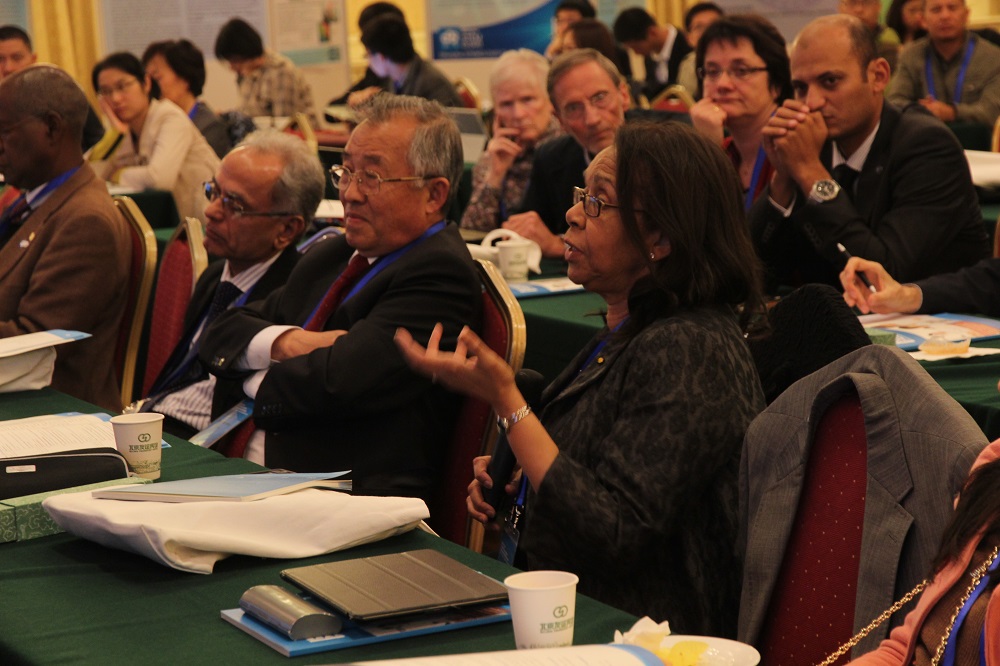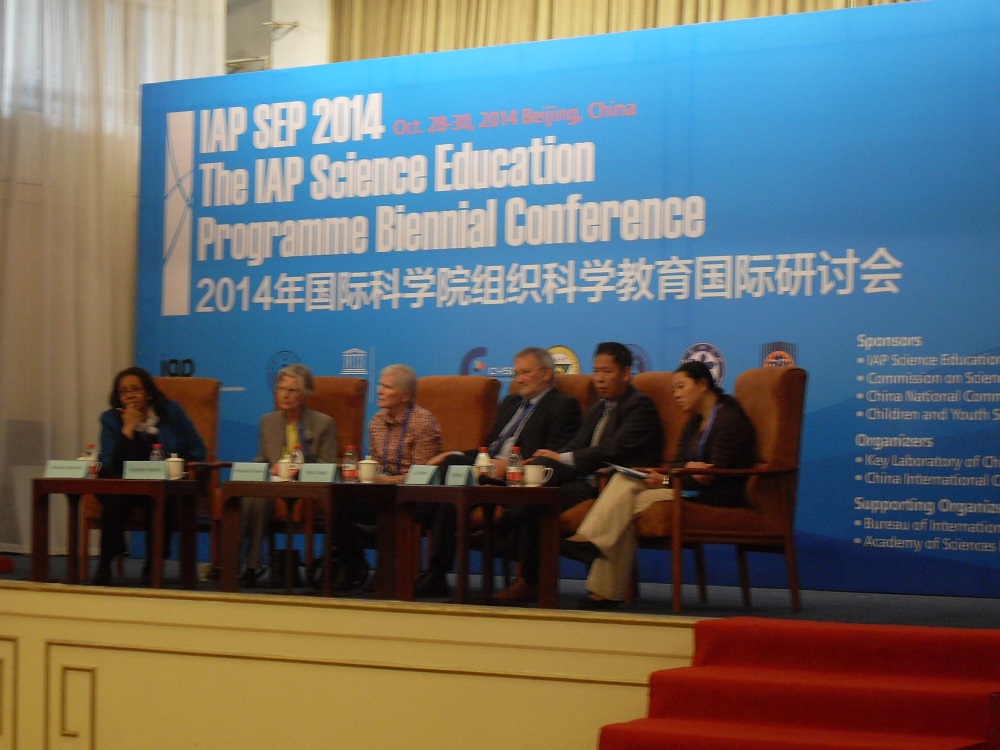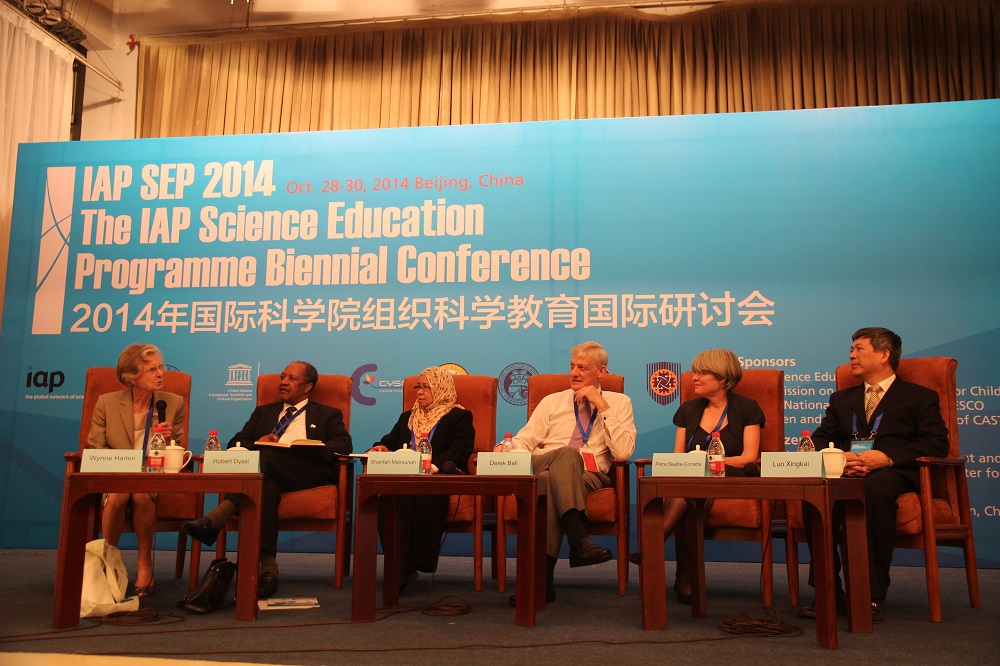IAP Science Education conference kicks off in Beijing
The IAP Science Education Programme (SEP) Biennial Conference is now under way in Beijing, China.
Hosted by the Chinese Association of Science and Technology (CAST), the conference is focusing on ‘Challenges and Opportunities of Inquiry Based Science Education (IBSE) / Science, Technology, Engineering and Mathematics (STEM) Education’. The meeting brings together 136 participants, with 28 coming from 19 countries outside China.
The conference was opened by Cheng Donghong, vice president of CAST, who noted that IBSE had been implemented in China for more than 10 years with great success.
“Hosting the IAP SEP Biennial Conference here in Beijing provides China the opportunity to discuss science education and science literacy with our counterparts from other countries, to exchange experiences, to learn about successes, and to build collaborations with leading experts and institutions elsewhere,” said Donghong. 
Providing a welcome on behalf of the China National Committee for UNESCO, Qin Changwei noted that our human society is now facing global challenges such as ecological deterioration. “Every man, woman and child needs to be science literate,” he said. “With good science education, we can make a difference in our economies and our path to sustainable development. We can shape the future we want.”
Hazami Habib, CEO of the Akademi Sains Malaysia, in her opening address, noted that: “The world is undergoing rapid and complex change, leading to the role of teaching and learning constantly being refined to meet new challenges. The whole ‘value chain’ – from primary to secondary and then tertiary-level education must link together to provide the formation required. I’m pleased to say that the Ministry of Science of Malaysia is fully behind this mission and that, since 2001, our Ministry of Education has been working to adapt IBSE to the Malaysian learning environment.”
In his keynote address, Dato Lee Yee Cheong, char of the IAP SEP Global Council, noted that the IAP programme promoting IBSE had been taken up by many developed countries. However, he added, uptake in developing countries with fewer resources was more patchy. This is partly, he said, because academies of science tend to have stronger links with ministries of science.
“We need to connect with the ministries of education,” he said, “so we can directly relate to the schools. The success we just heard about in China is because of the collaboration between CAST and the Chinese Ministry of Education. This is vital to promote IBSE.
“With regard to science literacy – the other aspect that the IAP SEP has been charged to tackle – we can also learn from China’s experience in the many outreach activities it is carrying out.” 
Among these activities has been the creation of the CAST Children and Youth Science Centre (CYSR), which runs activities such as Awards for Future Scientists, National Youth Science Camps, Children’s Science Video Festivals, and a National Science Day. Many Chinese universities and research centres also run open days aimed at bringing science and scientists closer to the public.
The IAP SEP Biannual Conference, which runs from 28-30 October 2014, will also have focus sessions on ‘IBSE and Technology Education’, ‘Student Outcomes Assessment’, ‘IBSE and National Development’, and ‘Science Outreach and Society’.
Sponsors include IAP, the CAST Commission on Science Education for Children, the China National Commission for UNESCO, and the CAST Children and Youth Science Centre. 
The meeting organizers are the Key Laboratory of Child Development and Learning Science, Ministry of Education of China, and the China International Conference Centre for Science and Technology (CICCST).
Supporting organizations include the Bureau of International Cooperation of the Chinese Academy of Sciences (CAS), and the Akademi Sains Malaysia.
Follow the LINK to the IAP events page and the conference website.
Following the conference, the Beijing Declaration was released in November 2014.